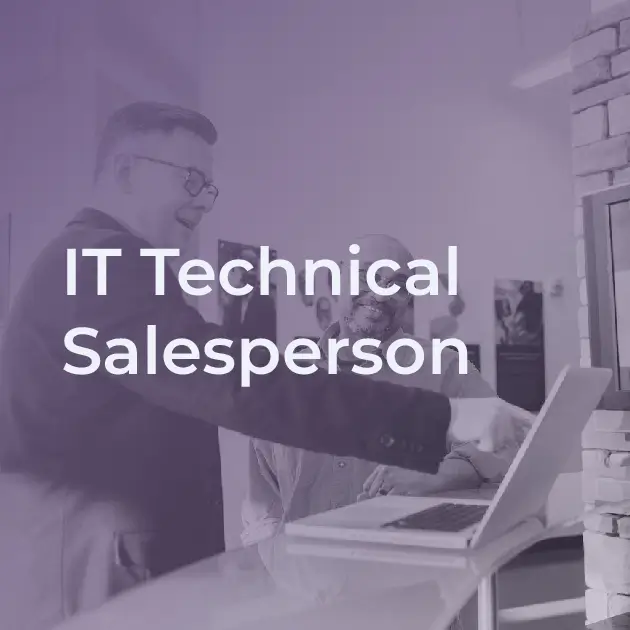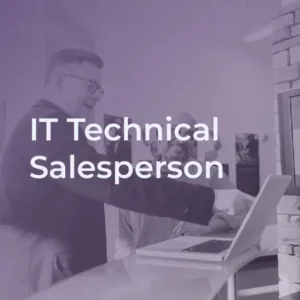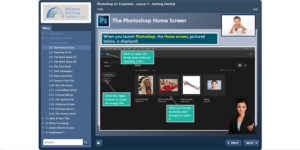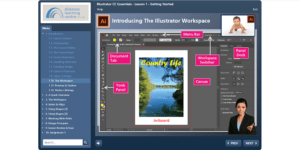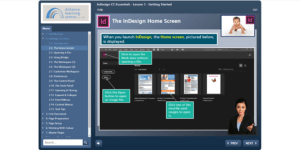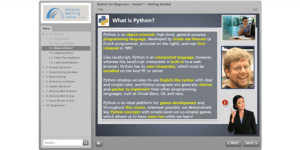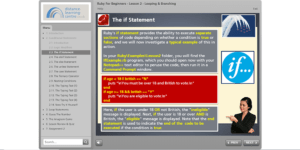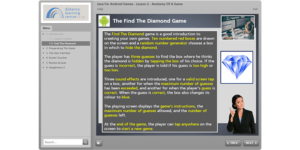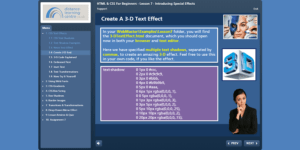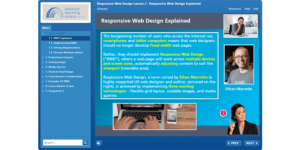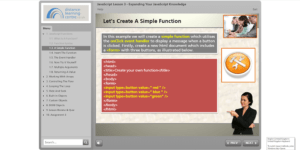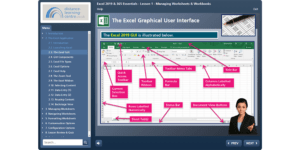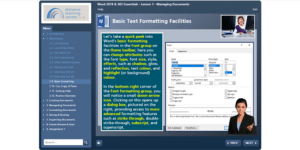Software Development Technician
Software development is a booming industry that spans across all sectors, from large corporations to government projects and small consultancy firms. Whether it’s creating multi-billion-pound solutions or designing bespoke software for clients, this occupation is at the forefront of technology.
As a software development technician, you’ll be part of the entry level team responsible for building computer programs. From developing applications for specific tasks to creating systems that control networks, your role is vital in the technological landscape. Imagine working on projects like transport ticketing systems, customer-facing websites, and asset management systems.

But it doesn’t stop there. Software development technicians also play a crucial role in solving real-world problems. From flood warning systems to sustainable farming approaches, your innovative solutions can enhance various industries. Plus, you’ll be contributing to the efficiency and effectiveness of organizations, giving them a competitive advantage and helping them meet customer expectations.
As a junior member of a software development team, you’ll be building simple software components and working closely with experienced developers. Your tasks will include coding, testing, and ensuring that the software meets its intended functionality. You’ll also have the opportunity to collaborate with designers, engineers, analysts, and project managers to ensure seamless software implementation.
While most of the work is office-based, you may also have the chance to work on-site, immersing yourself in the environment of clients and gaining valuable experience. Throughout the software development life cycle, from research and development to continuous improvement and retirement, you’ll play a pivotal role in creating innovative solutions.
If you’re ready to embark on a dynamic career in software development, join us as a software development technician. The possibilities are endless, and the future is waiting for you.
What will I learn?
Knowledge
- Fundamentals of all stages of the software development life cycle including development, Quality Assurance, User Acceptance Testing and release
- Roles and responsibilities within the software development life-cycle
- Roles and responsibilities of the project life-cycle
- Different communication methods, how to adapt appropriately to different audiences including collaborative technologies such as discussion threads and document collaboration
- The key similarities and differences between different software development methodologies, such as agile and waterfall
- Principles of effective teamwork to produce software
- Fundamentals of software design approaches and patterns, including when to identify reusable solutions to commonly occurring problems
- Organisational policies and procedures relating to the tasks being undertaken, and when to follow them. For example, the storage and treatment of General Data Protection Regulation (GDPR) sensitive data.
- Fundamentals of computing systems including physical, virtual and cloud technologies
- Fundamental principles of algorithms, logic and data structures. For example, how they work using a step-by-step solution to a problem, or rules to follow to solve the problem
- Principles and uses of relational and non -relational (nosql) databases
- Basic principles of software designs and functional/technical specifications
- Key principles of software testing frameworks and methodologies
- Principles of pattern recognition such as looking for similarities among and within problems
- Fundamentals of breaking down a complex problem or system into smaller, more manageable parts
- The importance of valuing difference and understanding the protected characteristics named in the Equality Act 2010
- Basic principles of emerging technology trends and innovations such as Internet of Things (IoT) Artificial Intelligence (AI) Augmented Reality (AR)
- Awareness of legal and regulatory requirements and their practical application to the role for example, Data Protection, Security, Intellectual Property Rights (IPR), Data sharing, marketing consent, personal data definition.
- Fundamental approaches to actions such as sequence, selection and iteration
- Basic principles of software project planning including: Risks and dependencies * integration * prioritisation of tasks * escalation of problems * quality
- Basic principles of processes and protocols used to ensure internet security, including concepts of security assurance
- Key principles of testing for components (including software, hardware, data),interfaces and the resulting service
- Basic principles of digital tools and their use in business: tools such as presentation tools * evaluation tools and techniques. such as project management tools
- Role and importance of Industry Standards and where to find them (e.g., ISO standards, IETF RFCs).
- Software development approaches for example object oriented, event driven or procedural
Skills
- Write simple code for discrete software components following an appropriate logical approach to agreed standards (whether web, mobile or desktop applications) under supervision
- Apply appropriate secure development principles to specific software components at all stages of development
- Support development of effective user interfaces
- Make simple connections between code and defined data sources as specified
- Test simple code and analyse results to correct errors found using unit testing under supervision
- Conduct a range of test types under supervision , such as Functional and Non -Functional.
- Apply structured techniques to problem solving, including carry out simple debug of code
- Follows organisational and industry good coding practices (including for naming, commenting etc.)
- Solve logical problems, seeking assistance when required (including appropriate mathematical application)
- Support the creation of simple software documentation and visuals to effectively communicate understanding of the program
- Define functional and non -functional requirements such as use cases, storyboards, user stories, performance and accessibility.
- Work within operational requirements such as health and safety, budgets, brands and normal business protocols
- Develop user interfaces as appropriate to the organisations development standards and the type of software development being developed
- Build scripts in line with work instructions for deployment into the relevant environment
- Follow simple software designs and functional/technical specifications in line with work
- Follow simple testing frameworks and methodologies in line with work instructions
- Follow company, team or client approaches to continuous integration, version and source control as instructed
- Support the communication of software solutions and ideas to technical and non-technical stakeholders
- Apply algorithms, logic and data structures in a supported context in line with work instructions
- Follow work instructions to contribute to building a given design whist remaining compliant with security and maintainability requirements
- Apply techniques to break down complex problems.
- Demonstrate how Key Performance Indicators (KPIs) can be used to frame and measure desired outcomes
- Implement secure code in appropriate languages of different types which is maintainable, readable, functional.
- Design simple software solutions to meet a requirement using tools and techniques, such as waterfall and agile
- Work in a shared code base with appropriate etiquette and tools, such as modularity and data definition
- Use simple debugging techniques, such as interactive debugging, print debugging, remote debugging
- Implement test plans under supervision to show that a test plan is implementable in practice and implementation conforms to the plan.
- Develop and use simple acceptance criteria.
- Apply and maintain procedures and security controls to ensure confidentiality, integrity and availability
- Use collaboration tools and technologies for source and version control to enable working together on common projects, regardless of physical location,
- Follow instructions to ensure client data is held securely under supervision e.g., not using personally identifiable information in test systems, making sure personal actions comply with ICO regulations
- Use collaboration tools and technologies for writing technical documentation for, and adapting to, specific audience(s). e.g., technical, non-technical, internal, external
Behaviours
- Use critical thinking skills when undertaking work tasks
- Committed to guided Continuous Professional Development
- Work independently and take responsibility within tightly defined parameters
- Maintain a productive, professional and secure working environment
- Team player, for example working collaboratively, keeping others informed using effective communication, recognising personal and professional limitations and seeking advice when necessary
Key Info
Duration
This apprenticeship will typically take 18-21 months to complete.
Level
This apprenticeship standard is at Level 3.
Qualifications
Where an apprentice has not already achieved Level 2 English and Maths, they must do so before taking the end-point assessment.
Training Provider
Receive top-notch training from one of our handpicked providers in our trusted network.
Allow us to handle the seamless connection between you and a training provider who will expertly guide you and your employer through your personalised training journey. With their support, you will elevate your skills and excel in your role.
Enquire now to start your learning journey
[fluentform id=”30″]
